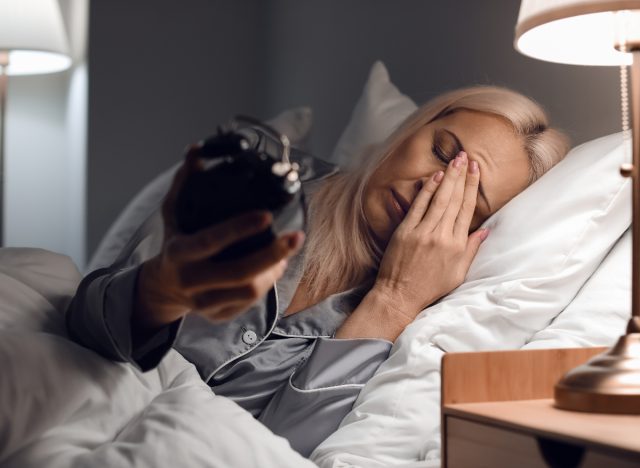Dealing with excess body flab of any kind can be an incredibly frustrating, challenging experience. Especially when you have belly rolls on your hands—or shall we say, in your midsection—it can make daily things like buttoning pants and slipping into form-fitting apparel difficult. (Not to mention, abdominal fat is associated with many health risks.) When you have an excess amount of belly fat, you will likely experience belly rolls, which are more noticeable when you sit down. Now, you may be wondering how these “rolls” got there in the first place. We spoke with Anthony J. Yeung, CSCS, a fitness expert and the founder of GroomBuilder, who shares five bad daily habits that cause belly rolls so you can quit them ASAP.
“Belly rolls aren’t only unattractive (which they are); excessive fat at your midsection can actually predict future health problems like hypertension, diabetes, and more. That’s why staying strong, lean, and fit in your core is vital for a long and healthy life,” Yeung tells us. So keep reading to find out the worst habits that cause belly rolls, and get your body back into shape. And when you’re done, be sure to read 6 Tips for Women To Lose Belly Fat & Keep It Off.
1. You’re sitting all day long.


If you have the bad habit of sitting all day with minimal breaks to walk and stretch your legs, you’re putting yourself at a major health risk—research says so. According to the Mayo Clinic, sitting down for an extended period of time can lead to increased blood pressure, obesity, high blood sugar, poor cholesterol levels, a greater accumulation of belly fat, and even early mortality.
“Too much sitting and a sedentary lifestyle can lead to more fat gains and derail your weight loss,” Yeung explains. “Also, sitting can make the creases and folds in your belly fat worse and more unflattering.”
2. You’re practicing “distracted eating.”
You may be surprised to learn that eating meals while scrolling through social media, texting, or watching video clips could be contributing to your belly fat. This is something many of us are guilty of at times, but research shows that this bad habit can really increase your calorie consumption without you even knowing it. According to a study published in Physiology & Behavior, participants who ate while using their smartphone (or while reading) increased their calorie intake by around 15%.
“If you’re trying to lose weight, close the distractions, focus on chewing your food, and you’ll eat what you need—no more,” Yeung recommends.
3. You’re rationalizing your poor eating habits.


Making excuses for your poor eating habits will only set you back—and add to your belly rolls. An example of rationalizing could be, “Today was stressful, so I really deserve this dessert, drink, meal, etc.” According to Yeung, “Too often, people rationalize why they struggle to lose weight and make bad choices. Instead, get a plan (or get a dietitian to make a plan) so you no longer decide; you just follow the plan and enjoy.”
READ RELATED: Supercharge Your Fertility With the Mighty Chia Seeds
4. You’re eating junk food.
Sure, potato chips, chocolate chip cookies, candy, fast food, and soda may taste good. But the truth is, they pack in a ton of empty calories, don’t offer any health benefits, and can become incredibly addictive. You’re not doing your body, wellness, or belly rolls any favors by grabbing a bag of chips or a candy bar in the lunch room, so stick to healthier options!
To emphasize just how detrimental junk food is, Frontiers of Young Minds explains that it’s a major culprit behind obesity, it’s usually very heavily processed, it can make you feel fatigued and unable to focus, and it can lead to heart disease. Unfortunately, junk food is an accessible and typical part of many individuals’ daily lives, but you can make a conscious effort to opt for healthier choices for meals, snacks, and drinks.
5. You’re not getting enough sleep.


According to research published in the Journal of the American College of Cardiology, a lack of enough restful Z’s, combined with access to free food, can result in consuming more calories and gaining fat—specifically “unhealthy fat” in your belly.
“You might think you’re okay with 5 or 6 hours of sleep, but you can’t fool your body. Poor sleep is linked to fat gain—especially around your midsection,” Yeung explains. It’s recommended for adults aged 18 and up to get a minimum of seven hours of sleep on a nightly basis.
Alexa Mellardo







